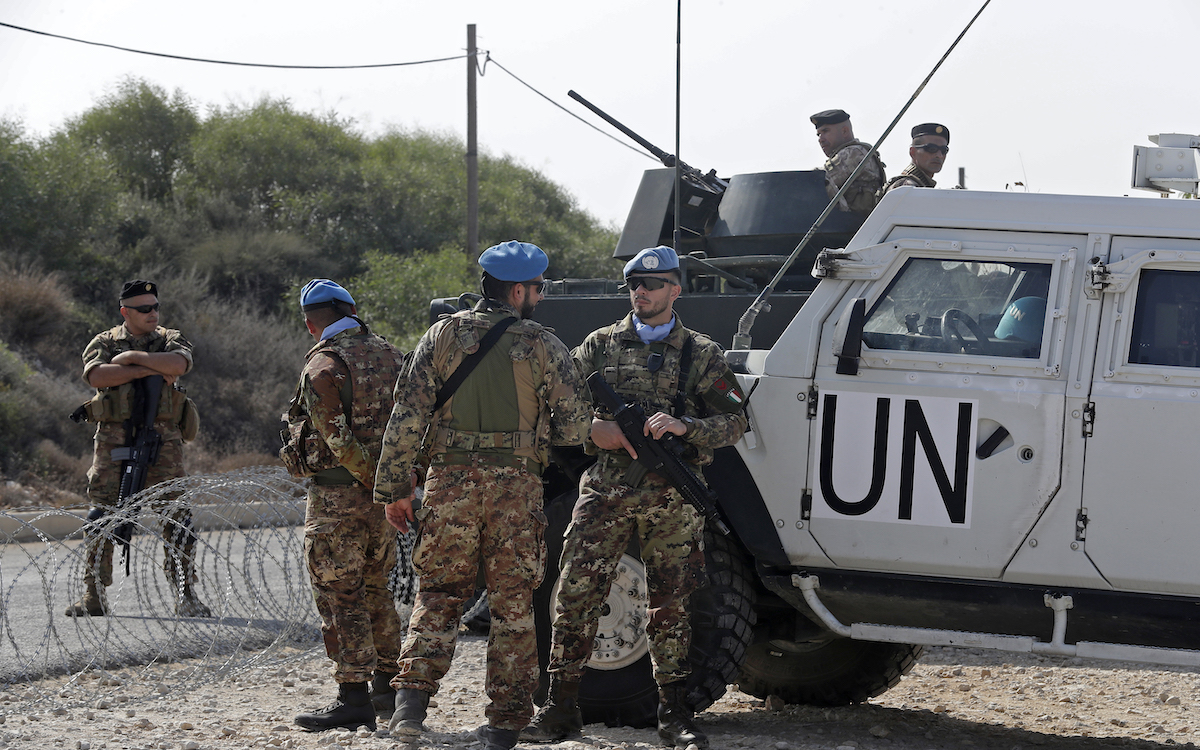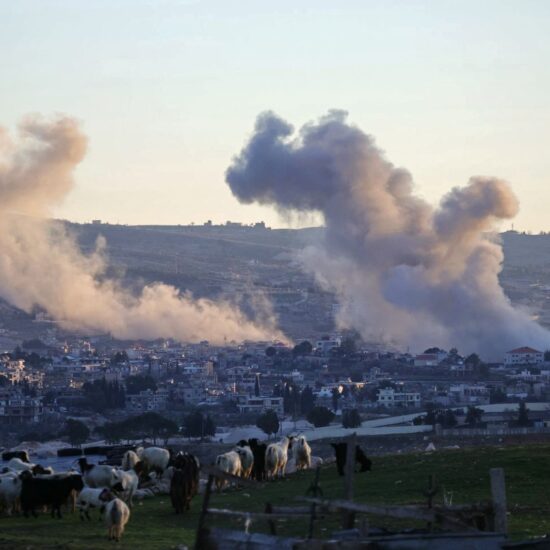
On August 31, the United Nations Security Council (UNSC) voted to renew the mandate for the United Nations Interim Force in Lebanon (UNIFIL) for another year despite Lebanon’s opposition to parts of the agreement.
The extension of UNIFIL’s mandate ensures that the around 10,000 international peacekeeping troops will remain in South Lebanon in the hopes of preventing another outbreak of conflict between Hezbollah and Israel.
Why Lebanon opposed the final agreement: In the lead-up to the renewal vote, the Lebanese government and Hezbollah had been pushing to have changes made to Article 16 of the mandate.
Article 16, first introduced in 2022, gives UNIFIL forces the right to perform unannounced patrols throughout South Lebanon. The Lebanese government and Hezbollah wanted this to be restricted to only allowing UNIFIL to perform patrols after coordinating and receiving approval from the Lebanese army.
When the agreement was still in the draft phase, caretaker Foreign Minister Abdullah Bou Habib expressed his opposition to its current wording, saying that it “does not refer to the necessity and importance of UNIFIL coordinating its operations with the Lebanese government, represented by the Lebanese army.”
Hezbollah’s opposition to UNIFIL having free reign in the south largely comes from its own security concerns, as they have many military positions throughout the region. While the vast majority of the south is free to visit, there are several pockets that Hezbollah has blocked off from the public and even the Lebanese army from entering for their own strategic military purposes.
According to UN Resolution 1701, which brought to an end the July 2006 war between Hezbollah and Israel, the only armed force that should be operating south of the Litani River is UNIFIL although Hezbollah is widely believed to be continuing its military activities in the area.
Despite Lebanon and Hezbollah’s opposition to Article 16, it was included in the final vote that approved Resolution 2695 which extended UNIFIL’s mandate.
The implications of Article 16: At least on paper, Article 16 should ensure that UNIFIL can have access any area in South Lebanon at any time without having to first coordinate with the Lebanese army. In reality, though, it is much more complicated.
Hezbollah is against UNIFIL operating on its own, especially since it could happen upon one of its security pockets.
However, Tarek Mitri, president of the St. George University of Beirut and one of the architects behind Resolution 1701, argued that UNIFIL will likely continue to exercise caution.
“This doesn’t mean UNIFIL will flex its muscles in southern Lebanon. I think UNIFIL is very cautious but at least they know that they have the right if they choose to patrol every village. I don’t think they will exercise this right,” he told NOW.
“These things depend on the quality of the leadership of UNIFIL. But the fact that they have this resolution might embolden them. Once you have the right to move freely, then you might be tempted to make the best of it,” he later added.
Even if UNIFIL looked to exercise its rights as expressed in Article 16, Hezbollah has methods to impede UNIFIL and its patrols.
“They have them demonstrate, women, men and children, peacefully against UNIFIL patrols. What do you want UNIFIL to do? Shoot at the demonstrators? Very often they will just go back [to base] and let go,” Mitri explained.
Just because UNIFIL may not utilize Article 16, however, it does not mean that the Lebanese government and Hezbollah are happy that it was included in the voted-on agreement.
The response in Lebanon: Following the vote approving UNIFIL’s renewal, Bou Habib looked to pass the blame for the adoption of Article 16 onto the former Lebanese representative to the UN, Amal Mudallali.
Mudallali quickly pushed back on this, saying that when she had received the French proposal at the start of August 2022 which included the section about giving UNIFIL the ability to perform unannounced patrols, she informed the government back in Beirut to seek guidance as to what her position should be only to receive silence in response.
“The Minister’s concern was focused in every communication on the need to preserve the paragraph related to aid from UNIFIL to the Lebanese army in the south, who were suffering from a shortage of fuel and food,” the former representative stated.
Caretaker Prime Minister Najib Mikati tried to play off the renewal as a win for Lebanon.
“The extension decision includes a fundamental clause that Lebanon had requested, which concerns UNIFIL carrying out its duties in coordination with the Lebanese government, in accordance with the headquarters agreement. This in itself constitutes a factor of satisfaction,” he said in a statement following the vote.
The vote: While the UNSC voted to approve Resolution 2695, for the first time, China and Russia abstained from voting on the resolution.
Like Lebanon and Hezbollah, both China and Russia expressed opposition to Article 16 and looked to negotiate over its alteration to limit UNIFIL’s actions to those coordinated and approved by the Lebanese army.
However, since no one wanted UNIFIL to lose its mandate, the two countries, which have become increasingly aligned with Iran in recent years, abstained as a single veto would have meant that the resolution would not pass.
Following the adoption of Resolution 2695, China and Russia expressed their disapproval of the final text with a Russian representative claiming that the text did not “take into consideration the opinion of Lebanon and its leadership who have repeatedly said there needs to be coordination between UNIFIL, and the armed forces.”
The United Arab Emirates’ representative at the UN, Lana Nusseibeh, welcomed the vote but also took aim at Hezbollah, saying that the Iran-backed party had made a “mockery” of the mandate over the last year through its live-fire drills and preventing UNIFIL from operating freely.
“We would have also preferred clear references to the increasing obstacles, hampering UNIFIL’s freedom of movement, and its ability to reach all important sites, including areas where containers are placed by the Hezbollah-affiliated Green Without Borders,” she stated.
The situation on the border: Tensions are currently high along the Lebanese-Israeli border with both Hezbollah and Israel making provocative actions.
The tensions really started to rise after Hezbollah set up military tents in June in the Shebaa Farms-Kfar Chouba area. Hezbollah has continually refused to remove them while Israel continues to seek a diplomatic solution, all the while not completely ruling out military action to forcefully remove them.
Then, at the start of July, Israel absorbed the northern section of Ghajar, a village that was split in two with the southern half belonging to Israel and the northern half to Lebanon.
Resolution 2695 mentions Israel’s occupation of the Lebanese section of Ghajar and, in Article 19, calls for Israel’s withdrawal from the area.
So far the situation remains in a stalemate, with UNIFIL being the one whose job it is to maintain peace even as both sides ignore the other’s demands made through the peacekeeping force.
What next: Little is likely to change in South Lebanon and UNIFIL will continue to do what is has been doing for several decades.
“UNIFIL has become a de facto observation force. They hardly intervene in any sense. They patrol every now and then and they document the Israeli violations of Lebanese sovereign airspace. They also document when you have a Lebanese shepherd who crosses the Blue Line,” Mitri stated.
While the peacekeeping force may have the right to perform patrols whenever and wherever it wants, Hezbollah will almost undoubtedly oppose this and hinder the UN force in the event that UNIFIL chooses to do so.
Nicholas Frakes is a senior reporter with @NOW_leb. He tweets @nicfrakesjourno.








